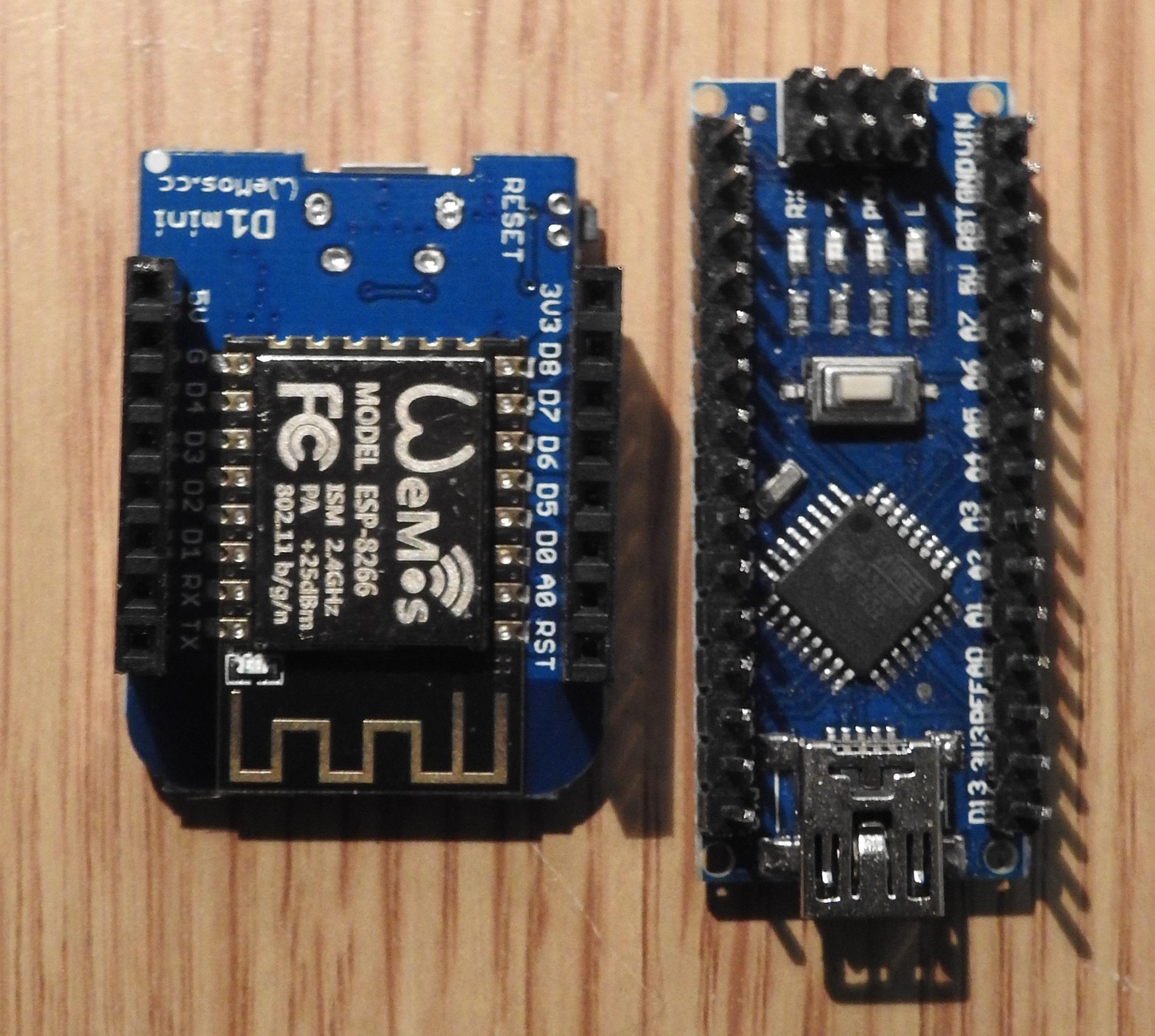Recently I purchased a Wemos D1 board, when I was browsing around recently I noticed that they also had a mini version. If you know your Arduino boards then this would be similar to the Arduino Nano. Here is a picture I took of one alongside an Arduino Nano

As you can see its nice and compact for any projects where space is an issue. Another great feature for ease of development is the ability to use the Arduino IDE or NodeMCU. this means you can get up and running quickly. The pin headers are located in a sensible layout, so it looks easy to create your own basic shields for the board
Lets look at some basic specs, the operating voltage and the input voltage to Analog are critical, remember this is a 3.3v board
| Microcontroller | ESP-8266EX |
| Operating Voltage | 3.3V |
| Digital I/O Pins | 11 |
| Analog Input Pins | 1(Max input: 3.2V) |
| Clock Speed | 80MHz/160MHz |
| Flash | 4M bytes |
Here are the pin functions
| Pin | Function | ESP-8266 Pin |
| TX | TXD | TXD |
| RX | RXD | RXD |
| A0 | Analog input, max 3.3V input | A0 |
| D0 | IO | GPIO16 |
| D1 | IO, SCL | GPIO5 |
| D2 | IO, SDA | GPIO4 |
| D3 | IO, 10k Pull-up | GPIO0 |
| D4 | IO, 10k Pull-up, BUILTIN_LED | GPIO2 |
| D5 | IO, SCK | GPIO14 |
| D6 | IO, MISO | GPIO12 |
| D7 | IO, MOSI | GPIO13 |
| D8 | IO, 10k Pull-down, SS | GPIO15 |
| G | Ground | GND |
| 5V | 5V | – |
| 3V3 | 3.3V | 3.3V |
| RST | Reset | RST |
So to summarise, the Wemos D1 mini has
- 11 digital input/output pins, all pins have interrupt/pwm/I2C/one-wire supported(except D0)
- 1 analog input(3.2V max input)
- a Micro USB connection
- Compatible with Arduino
- Compatible with nodemcu
Links
You can pick up one of these from about $5
D1 mini – Mini NodeMcu 4M bytes Lua WIFI Internet of Things development board based ESP8266 by WeMos
